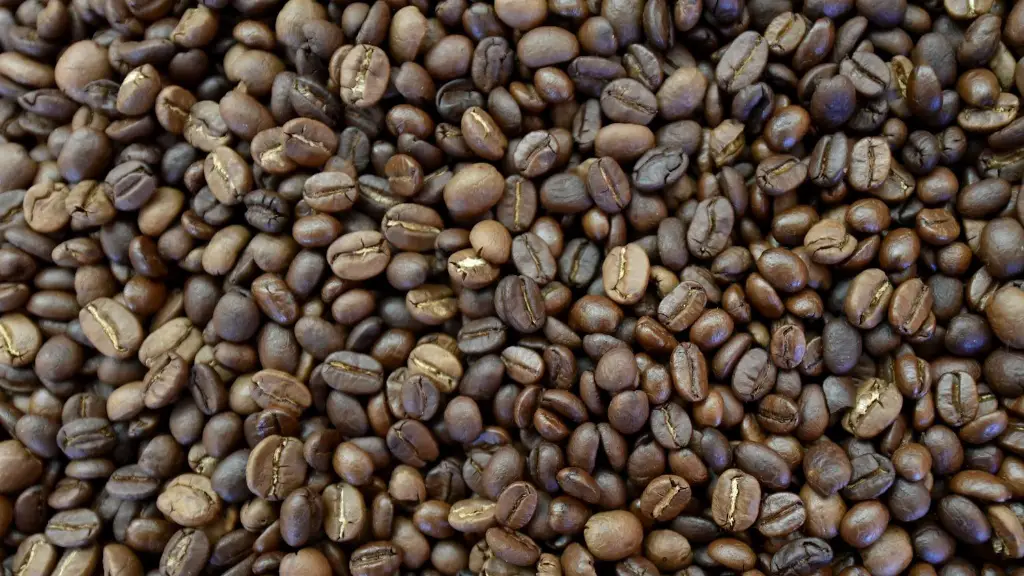Coffee has long been a popular beverage that energizes and wakes people up in the morning. With the growing popularity of coffee, many people are wondering if it is a healthy choice to make. Coffee can be considered a healthy drink if you regulate your intake. Coffee has antioxidant and anti-inflammatory properties, may help improve brain health, and has been linked to reduce risk for certain types of cancer.
When consumed in moderate amounts, coffee can be beneficial to your overall health. Some health experts suggest drinking one to two cups of coffee daily. When consumed in excessive amounts, however, the health benefits of coffee can be mitigated, as too much caffeine can lead to an increased risk of high blood pressure, heart disease, and other ailments. Furthermore, consuming coffee with added sugar, milk, or cream can increase the amount of calories your body intakes – which can lead to unhealthy weight gain if consumed in large quantities.
Many studies have been conducted to investigate the correlation between coffee consumption and the risk of chronic diseases, some of which have been inconclusive. One recent study published in The American Journal of Clinical Nutrition concluded that consuming six or more cups of coffee per day was associated with an increased risk of coronary heart disease in both men and women.
For those who are looking to increase their daily intake of beneficial antioxidants, health experts recommend drinking black coffee without any added sugar. In addition, recent studies have shown that consuming coffee could potentially help improve brain health and cognition. Coffee has been known to contain some of the same compounds that are found in energy drinks, such as caffeine and guarana – both of which can help to keep you alert and improve your overall concentration.
Although coffee has many health benefits, it is important for individuals to remember to regulate their intake. Coffee consumption is not recommended for those who are pregnant, suffer from heart arrhythmias, or have difficulty sleeping due to its stimulating effects. Additionally, if you are considering drinking coffee in order to improve your physical activity, it is essential to speak with your doctor beforehand in order to ensure that you will not over-consume.
In conclusion, while coffee can be a healthy choice in moderation, it is important to remember that too much of anything can be bad for you. It is recommended to drink one to two cups of coffee daily, and drink it without added sugar in order to receive the full health benefits. Furthermore, although coffee has many potential health benefits – individuals should always consult their healthcare provider before incorporating it into their diet.
The Choosing Process of Coffee
When it comes to choosing coffee, there are a number of factors that need to be taken into consideration. Firstly, know the varieties. Knowing the type of coffee bean that you like can make the selection process a lot easier. Light roast and dark roast coffee offer distinct flavor profiles, so knowing which type of coffee you prefer can be helpful when shopping. Additionally, it can be beneficial to look into organic, sustainably-sourced, and Fairtrade-certified coffee.
Another factor to consider is the grind of the coffee. If you use an espresso machine or French press, you will need to choose a coarse grind. For drip coffee makers, a medium grind is generally recommended. A coarse grind will give your coffee a stronger flavor, while a finer grind will give you a much smoother cup. You can also experiment with different grind sizes, as this can also have a significant effect on the flavor of your coffee.
Finally, it can be beneficial to purchase your coffee from a specialty coffee shop. Specialty coffee shops typically offer higher-quality coffee and more variety, making it easier to find the right coffee for you. Furthermore, specialty coffee shops are often staffed by knowledgeable baristas who can help you choose the perfect coffee for your palate.
The Environmentally-Friendly Aspects of Coffee
Coffee can be an environmentally-friendly product, as long as it is produced, sourced, and processed sustainably. Coffee has become increasingly popular in recent years, meaning that more and more land is being used to cultivate coffee plants. As such, it is essential that sustainable practices are put in place in order to prevent deforestation and the destruction of natural habitats.
Organically-sourced coffee is one way to help ensure that your brew is environmentally-friendly. Organic certification ensures that crops are not treated with harmful pesticides or toxic chemicals, therefore preserving the natural environment. Additionally, Fairtrade-certified coffee is another way to make sure that you are buying coffee that is produced in an ethical and sustainable manner.
In addition to being sourced and processed sustainably, coffee can be enjoyed with less waste by using reusable coffee mugs and cups. Reusable coffee mugs and cups are an eco-friendly alternative to disposable cups, and they can help to reduce the amount of waste generated by coffee shops. Furthermore, it is important to properly dispose of coffee grounds, as they can attract pests and contribute to water contamination if they are improperly disposed of.
By choosing to drink environmentally-friendly coffee, you can help to protect the planet while still enjoying your favorite beverage. Reusable mugs and cups are an easy and eco-friendly option. Moreover, seeking out organic and Fairtrade-certified coffee can help to make sure that you are taking part in sustainable practices.
The Health Benefits of Black Coffee
Black coffee can have many health benefits when consumed in moderation. It is an excellent source of antioxidants that can help fight oxidative damage. Additionally, black coffee can also help to boost metabolism and aid in weight loss. A cup of black coffee can also supply your body with essential minerals such as magnesium and potassium, which can help to regulate blood sugar and improve digestion.
Black coffee also has benefits for cognitive function. Caffeine, a key component of black coffee, has been known to improve focus and alertness, and can help to reduce fatigue. Furthermore, caffeine can also help to improve cognitive performance by enhancing memory and improving reaction times.
For those who are looking to incorporate black coffee into their diet, it is important to keep in mind that it still contains caffeine. As such, it should be consumed in moderation and some people may be more sensitive to the effects of caffeine than others. Furthermore, it is important to note that coffee can also be an appetite stimulant, so it should be consumed in moderation and should not be used as a replacement for meals.
The Quality of Coffee
When enjoying a cup of coffee, quality is key. The quality of coffee can be determined by its flavor, aroma, body, and acidity. The flavor of coffee should be smooth and balanced, without any off-flavors or bitterness. Furthermore, the aroma of coffee should be vibrant and inviting. The body of coffee should be full-bodied, so that it coats the tongue with a complex and satisfying flavor. Lastly, the acidity of coffee should be mild and round, without any sharp edges.
The quality of coffee is often determined by the method of preparation. The two most common methods of preparing coffee are the traditional drip method, and the pour-over method. The drip method is the most popular method of brewing coffee, as it is a simple and affordable way to brew a cup of quality coffee. The pour-over method, on the other hand, takes more time and effort, but produces a cup of coffee with a more balanced and complex flavor.
The quality of coffee is also determined by the type of coffee bean used to make the coffee. Different types of beans have distinct flavor profiles, so it is important to choose a bean that will suit your palate. For example, Arabica beans are known for their bright, fruity flavors while Robusta beans are known for their bold, robust flavor.
Finally, the freshness of the coffee beans can also have a major impact on the quality of coffee. Coffee beans should be consumed within one to two weeks of roasting, as fresh coffee beans will produce the best cup of coffee. Additionally, it is also important to store the coffee beans properly, as improper storage can lead to a degraded flavor profile and shortened lifespan.





